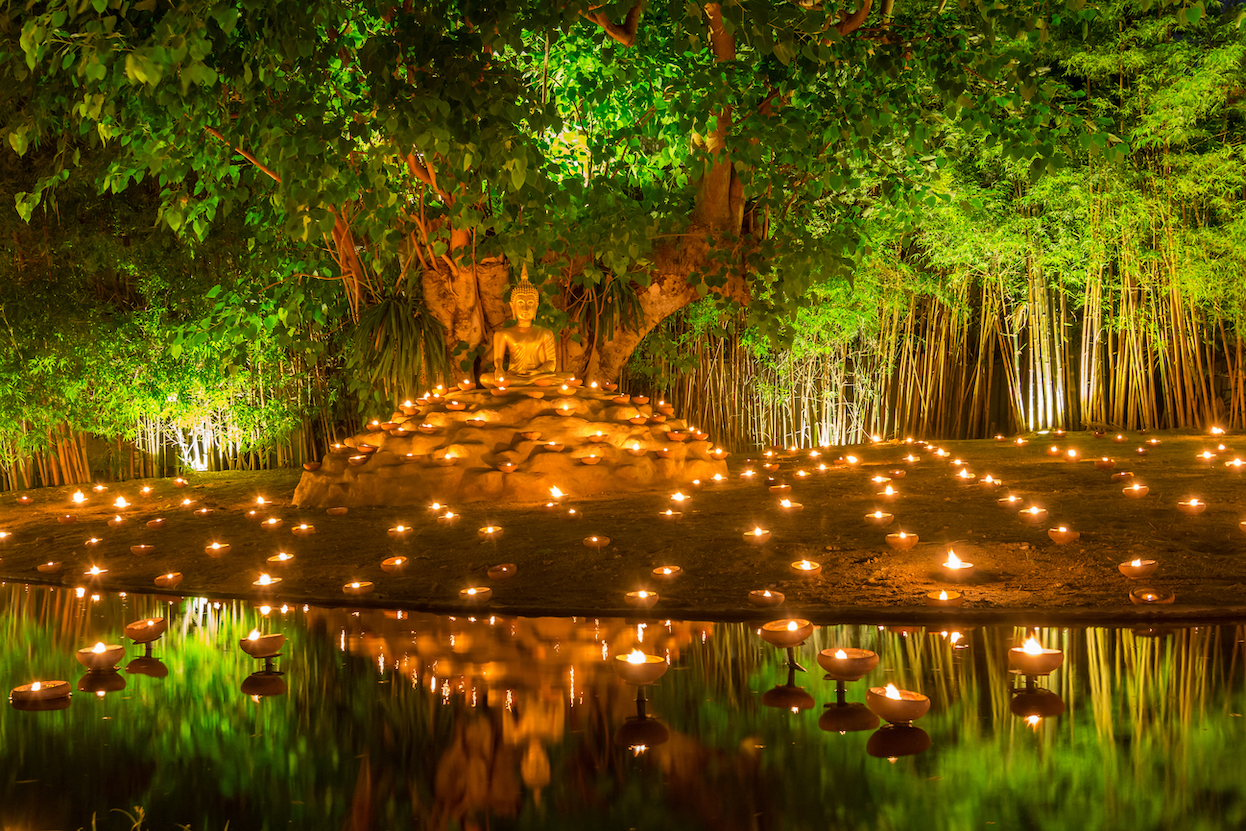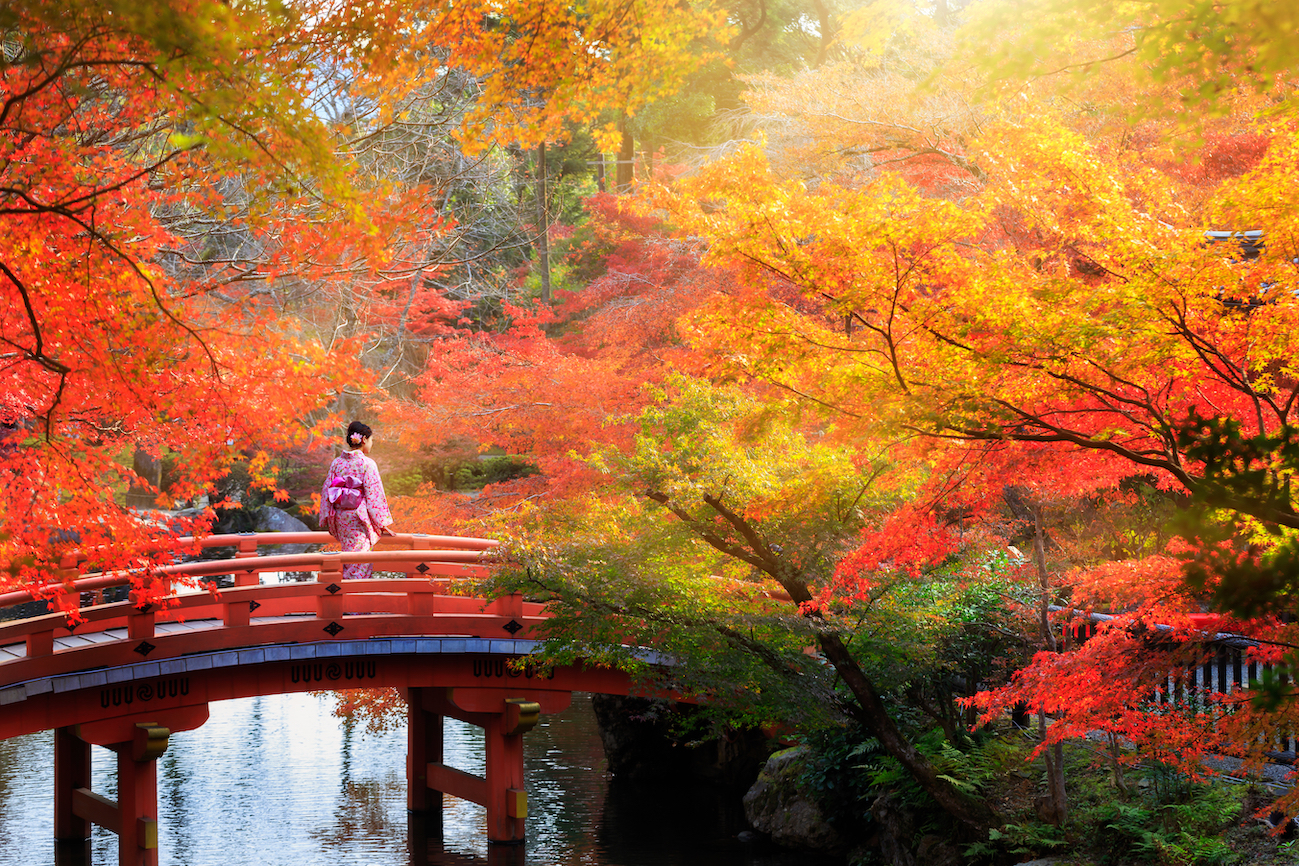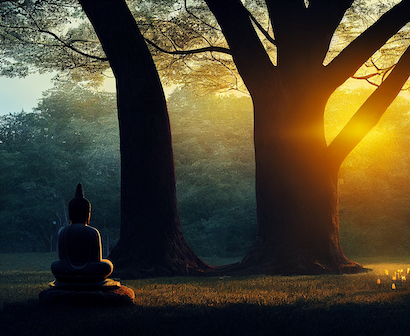December 8th is an incredibly important holiday in the Buddhist world. It is Bodhi Day, also known as Enlightenment Day.
Bodhi Day is observed to mark the moment that took place 2,500 years ago when Siddhartha Gautama achieved enlightenment and became the Buddha or ‘awakened one.’ The story goes that, rejecting the luxurious lifestyle of a prince, Siddhartha left the comforts of the palace at the age of 29 and went on a journey of deep introspection to seek meaning in life.

He meditated in Bodh Gaya, a town in northeastern India, under a Peepal tree, now famously known as the Bodhi Tree, and resolved to continue meditating until he achieved ‘bodhi’ (‘enlightenment’). He attained bodhi at the age of 35, after 49 days of continuous meditation, and was then able to see the interconnectivity of the world and beyond. These realizations became the Four Noble Truths. Siddhartha Gautama was now fully awake. He was now “The Buddha, The Teacher.”
Buddhists commemorate this day by meditating, studying the ‘dharma’ (‘universal truth or law’), chanting sutras (Buddhist texts), and performing kind acts towards others. Some people mark the day in a more traditional sense by cooking a meal of tea and cakes. Bodhi tree plantings are held throughout the month and are usually accompanied by tea ceremonies, while incense and multi-colored lights are displayed during the following month in the capital city of Tokyo and in towns and villages across the country.
However, Bodhi Day is not an official holiday in Japan — only Buddhists, who make up about 34% of the country’s population, observe the day.
The Importance of Bodhi Day
Buddhists believe that Bodhi Day helps one to remember vital lessons of life through both reflection and the teachings of Buddha. The lessons are deemed priceless as they teach us to find meaning in our lives and to live out the best parts of ourselves.
Another gift associated with Bodhi Day is the deepening of one’s spirituality. A spiritual awakening and deepening offers meaning and purpose in life. This day offers a platform to get a great deal of that deepening. It also unites us for the common good.
How Bodhi Day is Observed
While there are minor variations throughout the Buddhist world, most traditions remain the same. Houses are decorated with pictures or little statues of the Buddha under a fig tree to remember the day of his awakening. While Buddhists gather and stay in prayer during the night. Being a part of these prayers ensures the participant will have a spiritually renewing time.
In many countries, such as Laos, people mark the holiday by decorating fig trees with bright, multi-colored lights. The various colors in the lights represent the many different paths to achieving similar enlightenment as the teachings of the Buddha.
After Bodhi Day has come to a close, many continue to observe the significance of this day by giving small gifts to loved ones over the course of the next 30 days.
5 Facts About the Bodhi Tree
1). It is ancient. The Bodhi Tree is a very old sacred fig tree belonging to the family Ficus religiosa.
2). It can grow anywhere. Although it originated in Bodh Gaya, the tree now grows in other parts of the world too.
3). It is religiously symbolic. In religious iconography, its leaves are almost always represented as being heart-shaped.
4). It is nourished by constant watering.
5). The original site of the Bodhi Tree, at the Falgu River in Gaya, India, is a pilgrimage site. Its descendant, the Mahabodhi Tree is a frequent destination for pilgrims and is the most important of the four main Buddhist pilgrimage sites.
Bodhi Day is celebrated throughout the Buddhist world. A wonderful place to visit during the celebration in Kyoto, Japan.

Places to Stay
Hotel the Mitsui Kyoto
284 Nijoaburanokojicho, Nakagyo Ward, Kyoto, 604-0051
The Four Seasons Kyoto
445-3 Myohoin Maekawa-Cho, Higashiyama Ward, Kyoto, 605-0932
Sowaka
480 Kiyoicho, Higashiyama Ward, Kyoto, 605-0821
Places to Eat
Tenjaku – Tempura
570 Botambokocho, Kamigyo-ku, Kyoto, 602-8475
Nishijin Fujiyoshi – Japanese
626-14 Kamitenjincho, Kamigyo-ku, Kyoto, 602-0082
Yusokuryori Mankamero – Japanese
387 Ebisucho, Kamigyo-ku, Kyoto, 602-8118



